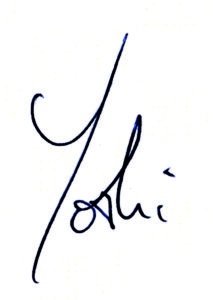There are songs that we remember from particular moments in our lives that have special meaning. Since I was in high school, I’ve been an admirer of the music of Peter Gabriel. His album, Us, was released when I was in rabbinical school in 1992 and I remember hearing some of the songs for the first time on Israeli radio while I was running in Gan Sachar in Jerusalem.
The other night, I saw Gabriel in concert. As it happens, it was almost exactly 30 years ago that I last heard him play live when he was touring with that same album. This time, one of the songs from Us had special resonance for me. As Gabriel, now 73 years old and still in fine voice, sang the chorus to his song “Digging in the Dirt,” I felt a deep connection between the music I was experiencing and this week’s Torah portion.
The song is about Gabriel’s own journey of self-discovery as he digs deeply into his own psyche. The chorus is the part that brought me to the story of Korach’s rebellion from this week’s parashah. “This time you’ve gone too far,” Gabriel sings, the same phrase that Korach and his supporters use in their complaint against Moses and Aaron: “… They said to them, ‘You have gone too far (רַב־לָכֶם)! For all the community are holy, all of them, and the ETERNAL is in their midst. Why then do you raise yourselves above the ETERNAL’s congregation?'” (Numbers 16:3)
Just a random coincidence, of course. I am not suggesting that Peter Gabriel sang this song at the concert I attended as a commentary on this week’s Torah portion. But this coming together of song and parashah is, I would suggest, an opportunity to make meaning.
“Digging in the Deep” is about soul-searching, exploring the self—what motivates us, drives us, haunts us, inspires us … The serendipitous coming together of the song and the parashah leads me to imagine how Korach’s psyche might have led him to rebel against Moses and Aaron. Korach descended from the same tribe as Moses and Aaron—their fathers were brothers, descendants of Jacob’s son, Levi. Korach wonders why he wasn’t anointed High Priest like his cousin Aaron, why he wasn’t invited to the mountaintop so that he might receive God’s word face-to-face, as it were, like his cousin Moses.
Korach wants the status, power, and authority that was granted to his cousins. It’s not that Moses and Aaron have “gone too far,” but rather that Korach is disappointed and even angry that, as he sees it, he hasn’t gone far enough. His claim is true—the whole community is holy. We are called earlier (Exodus 19:6) a “kingdom of priests and a holy nation.” The problem is not the message; it’s what motivates it.
Through this lens, the lesson of our parashah is to take time for reflection so that we might become more conscious of what is motivating our actions and feelings. By digging deeper, we will understand ourselves better, the words we speak and the actions we take. And then we go one step farther—we make corrections as needed so that we might indeed become as individuals and a community a “kingdom of priests and a holy nation.”
Shabbat Shalom,

—Rabbi Yoshi
